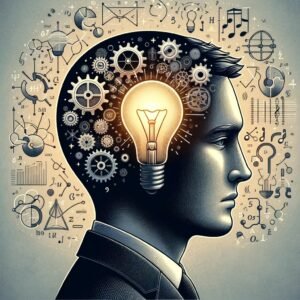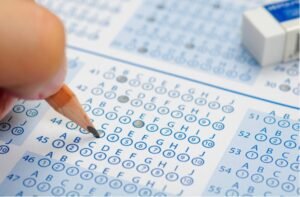Hollywood Celebrities and their Hidden Talent
Welcome, readers! Today, we delve into the intriguing world of celebrities and explore the importance of IQ tests in their lives. Join us as we uncover the hidden talents and intellectual prowess of renowned personalities who have taken the plunge and revealed their IQ scores. Let’s discover how these tests contribute to their personal growth, career success, and societal impact.

Natalie Portman
IQ 140
The accomplished actress Natalie Portman boasts an impressive IQ of 140. Beyond her acting skills, Portman’s high intelligence quotient speaks to her exceptional cognitive abilities. By taking an IQ test, she has gained valuable insights into her intellectual strengths, enabling her to make informed decisions regarding her career and personal development.
 Quentin Tarantino
Quentin Tarantino
IQ 160
Renowned filmmaker Quentin Tarantino is not just a master of storytelling but also possesses an exceptionally high IQ of 160. This score highlights his intellectual prowess, demonstrating that his creativity is backed by a formidable intellect. It is no surprise that his movies are known for their intricate narratives and clever dialogue. Some Movies Directed by him are Kill Bill, Once Upon a time in Hollywood, Pulp Fiction and many more.
 James Woods
James Woods
IQ 180
Acclaimed actor James Woods is not only known for his versatile performances but also for his astounding IQ of 180. Woods’ high intelligence is reflected in his ability to portray complex characters with depth and precision. His remarkable cognitive abilities contribute to his success in both film and television.
 Shakira
Shakira
IQ 140
The multi-talented singer and songwriter Shakira not only possesses a captivating voice but also an IQ of 140. Her high intelligence has played a role in her ability to craft meaningful lyrics and innovative musical arrangements. Shakira’s brilliance extends beyond her performances, contributing to her influence as a global icon.
Academy Award-winning actress Geena Davis not only captivates audiences with her performances but also boasts an IQ of 140. Davis’ intelligence contributes to her ability to bring depth and authenticity to her characters, showcasing her versatility as an actress.
Importance of Celebrities Taking IQ Tests:
The importance of celebrities taking IQ tests extends beyond personal curiosity. These assessments provide valuable insights into their intellectual abilities and talents, allowing them to make informed decisions about their careers, personal growth, and the impact they can have on society. Here are a few key reasons why it is important for celebrities to take IQ tests:
Self-awareness and Personal Development:
By taking an IQ test, celebrities gain a deeper understanding of their cognitive strengths and weaknesses. This knowledge can help them make informed choices regarding the roles they pursue, the projects they undertake, and the avenues for personal growth they explore.
Career Enhancement:
IQ tests can guide celebrities in selecting roles that align with their cognitive abilities and intellectual interests. By understanding their strengths, they can leverage their intelligence to make impactful career choices, take on challenging roles, and contribute to the industry in a meaningful way.
Inspiring Others:
Celebrities with high IQ scores serve as inspirations to their fans and admirers. By openly sharing their IQ test results, they demonstrate that intelligence is not limited to specific professions or fields. Their achievements serve as a reminder that intellectual prowess and creative talent can coexist, encouraging others to pursue their passions while nurturing their cognitive abilities.
Challenging Stereotypes:
The IQ test results of celebrity’s challenge stereotypes and preconceived notions about intelligence. They showcase that individuals in the entertainment industry possess diverse talents and intellectual capacities beyond their artistic abilities. This challenges the notion that actors, musicians, and performers rely solely on their creativity and highlights the multifaceted nature of their talents.
Promoting Intellectual Discourse:
Celebrities with high IQ scores often engage in intellectual discourse on a wide range of topics. Their intelligence and knowledge allow them to contribute meaningfully to discussions on social issues, politics, and scientific advancements. By participating in these conversations, they stimulate public discourse and encourage critical thinking among their audience.
Role Models for Lifelong Learning:
Celebrities who prioritize intellectual growth and take IQ tests become role models for lifelong learning. Their commitment to expanding their knowledge and understanding showcases the value of continuous education and personal development. By exemplifying a thirst for knowledge, they inspire others to embrace a similar mindset and strive for intellectual growth.
Advocating for Education:
Celebrities with high IQ scores often utilize their platform to advocate for education and highlight its importance. They understand the transformative power of knowledge and advocate for equal access to quality education for all. Through their influence and resources, they support educational initiatives and programs that promote intellectual development and lifelong learning.
Conclusion:
The importance of celebrities taking IQ tests goes beyond personal curiosity. By publicly sharing their IQ scores, they inspire others, challenge stereotypes, and advocate for education and intellectual growth. These assessments provide celebrities with valuable insights into their cognitive abilities, helping them make informed decisions regarding their careers and personal development. As celebrities embrace their intellectual prowess, they serve as beacons of inspiration for their fans, showcasing that intelligence and talent can go hand in hand. So let us celebrate the intellectual achievements of celebrities and appreciate the diverse forms of brilliance they bring to the world.
Are IQ Tests Reliable Measures of Intelligence?
It is crucial to understand that while IQ tests are
Cognitive Diversity: The Secret to Workplace Efficiency and Success
Are you ready to explore the cognitive diversity within your
How to Use Your IQ Test for Better Self-Improvement
Remember, an IQ test score is a starting point, not









